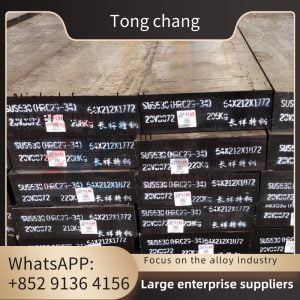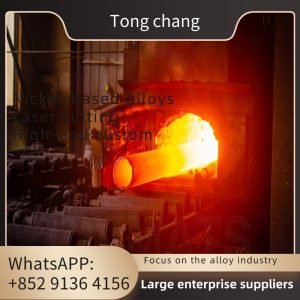| Product Name: | Stainless Steel Baffle | Material: | Steel |
|---|---|---|---|
| Size: | Customized | NDT: | 100% PT, UT, PMI |
| Application: | Tubular Heat Exchanger, Boiler, Pressure Vessel, Steam Turbine, Large Central Air Conditioning, Etc. | Customization: | Available |
| High Light: | Exchangers High-Performance Baffle Plates, High Performance Baffle Plates, Baffle Plates In Exchangers | ||
Baffle used in Heat Exchangers
Baffles are components of shell and tube heat exchangers which are used to support and fix the tubes in a defined position. The main machining process for baffle plates is drilling. Baffle plates are thin and are often machined by stacking multiple plates, so it is necessary to handle stacked plate drilling.ngs.
In heat exchangers, a baffle is a device used to direct the flow of fluid inside the exchanger. Baffles are typically made of metal and are placed inside the heat exchanger to create turbulence in the fluid flow. This turbulence helps to increase the heat transfer efficiency by promoting mixing and reducing the formation of boundary layers.
Baffles can come in various shapes and sizes, depending on the specific requirements of the heat exchanger. They are often placed perpendicular to the direction of flow to create a zigzag pattern that forces the fluid to change direction multiple times as it passes through the exchanger. This increases the contact between the fluid and the heat transfer surface, leading to improved heat transfer rates.
Baffles play a crucial role in optimizing the performance of heat exchangers by enhancing heat transfer efficiency and reducing pressure drop.
Equivalent Grades:
| Material Designation | 1.4541 |
| AISI/SAE | 321 |
| EN Material Symbol | X6CrNiTi18 10 |
| UNS | S 32100 |
| AFNOR | Z 6 CNDT 18-10 |
| B.S. | 321 S 31, 321 S51, 321 S18; 321 S 12 |
| Norm | VdTUEV 454 |
Chemical Composition:
| C | Si | Mn | P | S* | Cr | Ni | Ti |
| ≤0.08 | ≤1 | ≤2 | ≤0,045 | ≤0,015 | 17-19 | 9-12 | 5 x C ≤ 0.7 |
Other Materials
| Type of materials | Technical requirements * according to |
| Duplex Stainless Steel | ASTM/ASME SA182 F44, F45, F51, F53, F55, F60, F61 |
| Stainless Steel | ASTM/ASME SA182 F304,304L,F316,316L, F310, F317L, F321, F347 |
| Carbon Steel | ASTM/ASME A105, A350 LF1, LF2, A266, A694, A765 Gr.2 |
| Alloy Steel | ASTM/ASME SA182 F1, F5, F9, F11, F12, F22, F51, A350-LF3 |
| Non Ferrous | |
| Titanium | ASTM/ASME SB381, Gr.1, Gr.2, Gr.5, Gr.7, Gr.12, Gr.16 |
| Copper Nickel | ASTM/ASME SB151, UNS 70600(Cu-Ni 90/10), 71500(Cu-Ni 70/30) |
| Brass, Al-brass | ASTM/ASME SB152 UNS C10100, C10200,C10300,C10800,C12200 |
| Nickel Alloys | ASTM/ASME SB169,SB171, SB564, UNS 2200, UNS 4400, UNS 8825 UNS 6600, UNS 6601, UNS 6625 |
| Alloy 20 | ASTM/ASME SB472 UNS 8020 |
| Hastelloy | ASTM/ASME SB564, UNS10276 ( C 276 ) |
| Claded materials | ASTM/ASME SB898, SB263, SB264 or closer explosion cladding, making materials of 2 in 1 or 3 in 1. |
| Titanium- Steel, Nickel-Steel,Titanium- Copper, Stainless Steel- Carbon Steel, Alloys- Steel etc. |
Application
- Heat Exchangers and Condensers
- Seawater Systems
- Oil and Gas Industry
- Chemical Processing
- Power Generation
- Desalination Plants
- Petrochemical Industry
- Shipbuilding








